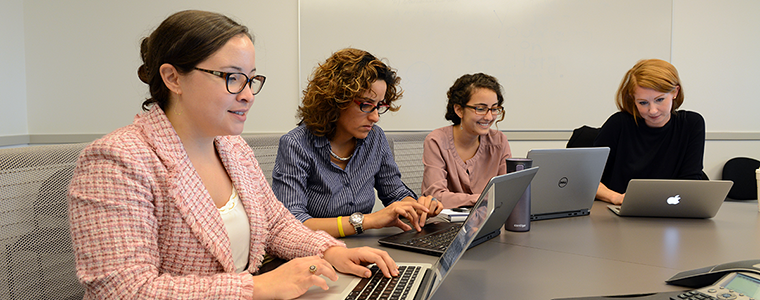American and British ambassadors joined Libyan activists and analysts for a USIP Twitter chat this week, as rival lawmakers in Libya met for negotiations brokered by the United Nations to end the recent surge of violence and the political crises that sparked it.

Three years after rebel groups toppled the regime of Muammar Qaddafi, Libya remains trapped in cycles of violence and instability. Militias are battling in both Tripoli and Benghazi for control of the vast nation and Islamist groups like Ansar al-Sharia are a growing presence. Two opposing parliaments have emerged, one operating in Tobruk and the other in Tripoli.
Amid these divisions, Libya’s regular police, army and judicial system have atrophied, exacerbating the security problem and undermining citizens’ trust in state institutions. USIP organized the Twitter chat to look at how Libya might escape this dangerous cycle. The conversation marked the release of new research on Libya’s security and justice landscape. The research findings were discussed in detail at a September 30 event at USIP headquarters.
The chat brought together a diverse range of participants, including the American, British, and Canadian emissaries to Libya, journalists, and Libyan civil society activists, as well as USIP experts.
The open discussion centered on five key questions posed by @USIP, which started off by asking how Libya could re-shape the security system.
Michael Aron, the British ambassador to Libya, tweeted the first response:
@USIP For me key is strong/effective Ministers of Interior & Defence with nationwide support as part of gov of national unity #USIPLibya
— Michael Aron (@HMAMichaelAron) September 29, 2014
Others also stressed the need to overcome Libya’s polarized environment and reconcile competing parties.
@USIP There's no sustainable solution that doesn't first address and shift the dynamics of the current polarization. Consensus building 1st.
— Hend (@LibyaLiberty) September 29, 2014
@USIP By first encouraging REAL reconciliation of all fractions of libya and agreeing to what the common goal is.
— Hajer ☪ (@Hajoor_) September 29, 2014
The conversation then turned to Libya’s justice institutions and what they might do, in light of little to no security, to regain the confidence of Libyans. Participants in the chat called for more judicial reform, transparency and prosecution of human rights abuses committed by all factions. But they noted the difficulty of taking these steps without protection from functioning security units.
reshaping #Libya's security sector: conflict resolution pre-requisite, disarmament of unaccountable militias, ending impunity #USIPLibya
— Hanan Salah (@hananHRW) September 29, 2014
So, what could the international community do to support Libyan civil society. American Ambassador Deborah K. Jones, called for more training:
Q3: by continuing to train individuals in fundamentals of governance and citizenship #USIPLibya
— Safira Deborah (@SafiraDeborah) September 29, 2014
Translating vision into political reality requires training in technical skills - funding mechanisms, procurement, etc. #USIPLibya
— Safira Deborah (@SafiraDeborah) September 29, 2014
Independent analyst James Wheeler, however, said that providing security would be the best way to help civil society organizations.
USIP also asked how the deadlock among Libya’s political leaders and other elites might be broken. ForeignPolicy.com blogger Mohamed Eljarh had a multi-part answer:
#USIPLibya: In order for political deadlock(s) to be resolved, leaders need to learn how to operate democratically & stop using militias.
— Mohamed Eljarh (@Eljarh) September 29, 2014
#USIPLibya In order to help resolve the deadlock in #Libya, we need to try & separate regional - ideological dimensions of the struggle.
— Mohamed Eljarh (@Eljarh) September 29, 2014
The final question pondered how Libya’s militias might be reined in. Canadian Chargé d'Affaires Colin Townson advocated a political process:
On militias, a pol. process will be required. Libyans need to rally in support of #Libya's legit. institutions to enable progress #USIPLibya
— Colin Townson (@ColinFTownson) September 29, 2014
Read the entire conversation on Storify.